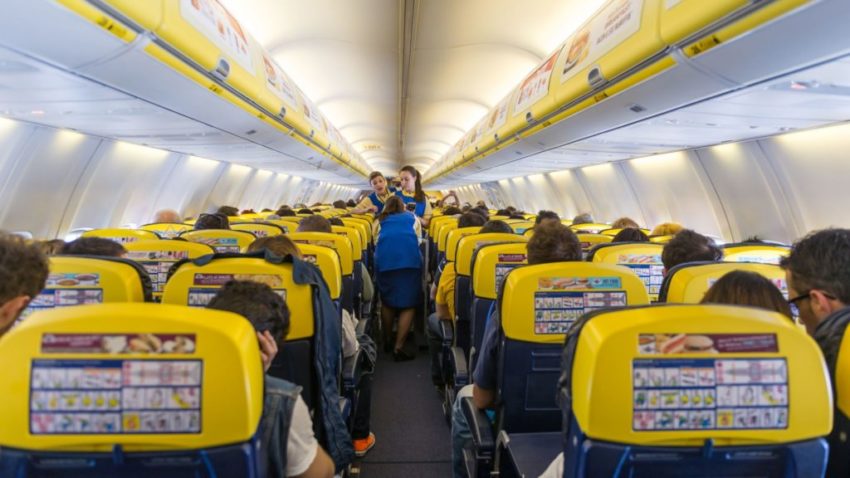Ryanair is planning to reintroduce 1,000 flights a day by July 1, with passengers undergoing temperature checks at airports to combat the spread of coronavirus.
Europe’s busiest airline said today that 40 per cent of its flight schedule would be restored within seven weeks, subject to government restrictions on travel across the Continent being lifted.
The budget carrier, which operates from almost 20 UK airports, said that it would restart flying from “most” of its bases across Europe in the biggest expansion of travel since the lockdown was introduced.
The move comes despite the planned introduction of a two-week quarantine period for most passengers entering the UK, possibly from June 1. Other airlines have said that the measures will decimate the industry and prevent the vast majority of people from flying.
Ryanair insisted that it would put extensive safety measures in place to limit any spread of coronavirus.
Passengers will be asked to take their own temperature before leaving home and it could be rechecked at the airport by airline staff. Travellers with a high temperature — typically those above 38C — “will be asked to return home”, Ryanair said.
All passengers will have to wear face coverings throughout the airport and plane cabin. Queueing for lavatories on board aircraft will also be banned, with customers instead forced to request to use the loo.
The Irish airline insisted that social distancing on aircraft “will be encouraged where it is possible” although it did not reveal how many seats will be taken up.
Other airlines have faced criticism for failing to maintain empty seats between passengers to enforce social distancing. Some experts have said that airlines would only be able to carry as little as 20 per cent of usual passenger numbers to maintain the full recommended two metres between travellers.
The airline, which plans to operate at least some flights on 90 per cent of its usual flight network, said that on-board refreshments will be limited to pre-packaged items, sales will be cashless and cabins will be disinfected every night.
Ryanair indicated that it would co-operate with any quarantine measures imposed by EU states and the UK. The UK will require passengers arriving from any country — other than France and Ireland — to self-isolate for a two-week period, under measures announced this week.
The airline said that all passengers flying in July and August will be asked to fill in details at check-in of how long their planned visit will be, their address while visiting another EU country and contact information. This will “help them to monitor any isolation regulations they require of visitors”.
The move represents the biggest boost to flight schedules since the lockdown was imposed in late March.
At least 98 per cent of flights in and out of the UK have been grounded in recent weeks, with the boss of British Airways’ parent company warning yesterday that it represented the “biggest crisis” in the airline’s history.
Earlier this month Wizz Air, the eastern European budget carrier, restored seven flights out of Luton airport and other carriers such as Lufthansa and KLM have also announced plans to extend schedules.
Ryanair has been operating a skeleton daily schedule of 30 flights between Ireland, the UK and Europe over the last seven weeks.
Eddie Wilson, the carrier’s chief executive, said: “It is important for our customers and our people that we return to some normal schedules from 1 July onwards. After four months, it is time to get Europe flying again so we can reunite friends and families, allow people to return to work and restart Europe’s tourism industry, which provides so many millions of jobs.
“Ryanair will work closely with public health authorities to ensure that these flights comply, where possible, with effective measures to limit the spread of Covid-19. As already shown in Asia, temperature checks and face masks or coverings are the most effective way to achieve this on short-haul within Europe’s single market.
“Now that Europe’s states are allowing some gradual return to normal life, we expect this will evolve over the coming weeks and months.”


